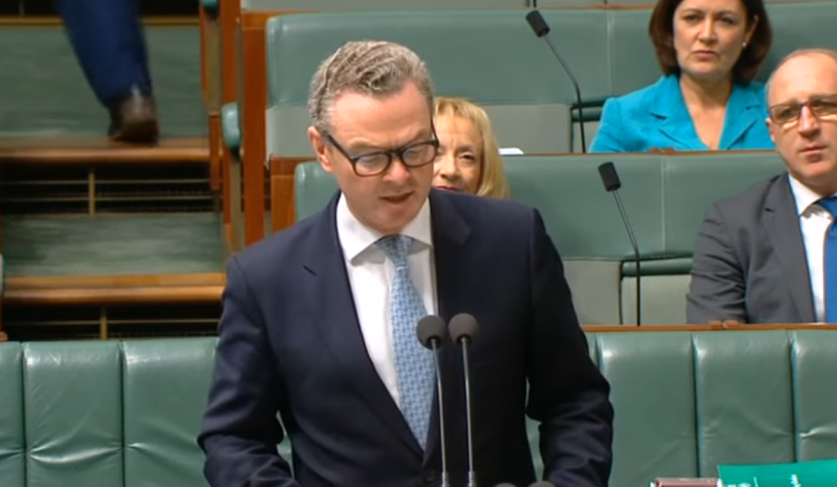After just over half a year since the Turnbull government’s re-election in July 2016, Minister for Defence Industry Christopher Pyne has outlined all the achievements they have made in the portfolio.
Minister Pyne emphasised the government's successful partnerships with prime defence contractors, some of which were shortlisted for big projects.
"Within days of taking the portfolio, BAE Systems Australia and Rheinmetall were shortlisted to compete for the Land 400 Phase 2 project," Minister Pyne said.
"This iconic project will acquire 225 Combat Reconnaissance Vehicles and help us win the land battle.
"The total acquisition cost is up to $5 billion.
"The Test and Evaluation program is now underway and it will see vehicles offered by the two companies undergo blast and ballistic testing to make sure they are good enough to transport our military personnel."
Thales' Hawkei project is another accomplishment the government has highlighted as part of their ongoing progress in growing the defence industry's capabilities.
"Late last year, the [Thales Hawkei] project reached a major milestone – the handover to Defence of the first of 10 vehicles to roll off the Thales production line in Bendigo," Minister Pyne said.
"These pilot Hawkei vehicles pave the way for full-rate production in 2018 and represent a triumph both of defence capability and also the country’s burgeoning defence industry.
"Hawkei production will involve around 170 jobs in the Bendigo region.
"It's expected approximately 60 additional jobs will be created in Thales' supply chain."
The Future Submarines Project was also identified as a key achievement for the government.
"The Turnbull government has determined that Australia needs 12 regionally superior submarines with a high degree of interoperability with the United States," Minister Pyne said.
"In September we signed the first contract ahead of schedule with DCNS to mobilise the resources needed to develop our regionally superior Future Submarine and commence its design. At the same time, we announced Lockheed Martin Australia as the combat system integrator.
"As a crucial part of the process we have already commenced work to maximise the opportunity of Australian industry involvement in the project and early planning for the construction of the submarines here in Australia."
Also of importance in maritime capabilities, is the Future Frigate and Offshore Patrol Vessel programs.
Minister Pyne touched on the government's plans to construct nine anti-submarine warfare frigates in Adelaide by 2020, which will cost $35 billion.
"The Future Frigate and Offshore Patrol Vessel programs will directly create over 2,500 jobs for Australians and will indirectly support the jobs of many thousands more," said Minister Pyne.
"The $3-4 billion program to construct 12 Offshore Patrol Vessels will begin in Adelaide in 2018 and transition to Western Australia."
The Joint Strike Fighter Maintenance and Sustainment Hub has also been another success for the government, according to Minister Pyne.
"I was pleased to announce on 7 November that Australia had been successful in the first round of assignments for work maintaining the componentry of the global fleet of Joint Strike Fighters. Successful companies include H.I. Fraser, which is located in the member for MacKellar’s electorate, and Rockwell Collins Australia, located in the member for North Sydney’s electorate," Minister Pyne said.
"The award of this contract acknowledges that Australia has the skill base and capacity to take on one of the most technically complex and expensive defence projects ever produced, as a maintenance and sustainment hub for the Joint Strike Fighter aircraft.
"This places Australia as the regional hub for maintenance, repair, overhaul and upgrade for the Joint Strike Fighter fleet, potentially bringing hundreds of millions of dollars and supporting hundreds of Australian jobs for decades to come."
The Centre for Defence Industry Capability (CDIC) and the Defence Innovation Hub are also points of pride for the government, Minister Pyne said.
"The government is committed to working with industry to build our innovation potential and ensure Defence maximises its opportunities to develop cutting-edge technologies," he said.
"In December last year, I opened the Centre for Defence Industry Capability, which has been funded at $230 million over the decade, a close collaboration between the private sector, Defence and AusIndustry.
"At the same time I opened the Defence Innovation Hub.
"The new $640 million Innovation Hub will bring together Defence, industry, academia and research institutions to collaborate on innovative, creative and cutting edge technologies that can deliver better Defence outcomes."
The separation of ASC into three entities was also discussed, with Minister Pyne saying this separation "will deliver a more flexible approach to managing the investment required in shipbuilding infrastructure to support the government’s historic continuous shipbuilding program".
"Work has already begun on the separation of ASC into the three new companies, with the full separation expected to be completed in mid-2017," he said.
The Naval Shipbuilding Plan is another achievement that is expected to come together and be released soon, as reported previously by Defence Connect.



